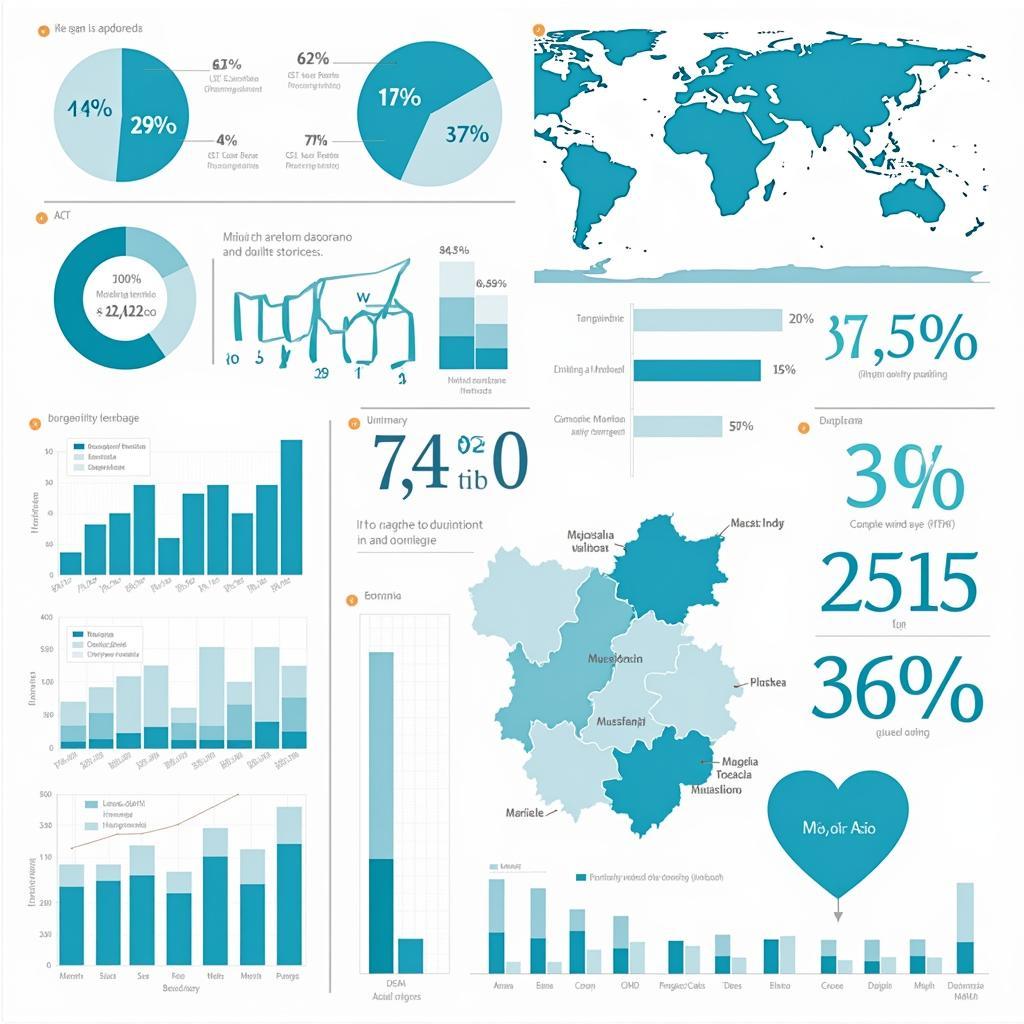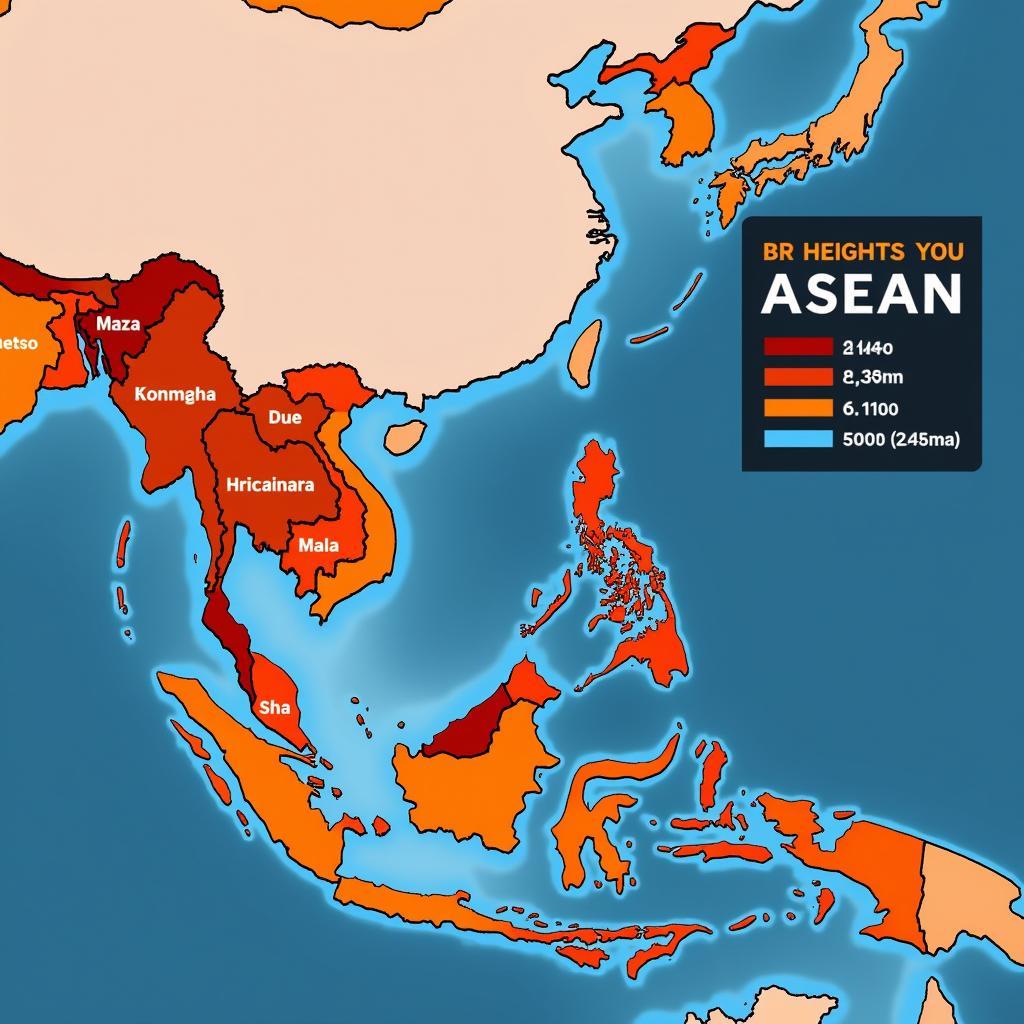Ase Dat, short for ASEAN Data, refers to the vast and diverse landscape of information and statistics related to the Association of Southeast Asian Nations (ASEAN). This data encompasses a wide range of areas, including economics, trade, demographics, tourism, education, healthcare, and more. Understanding ASE DAT is crucial for businesses, researchers, policymakers, and anyone interested in gaining insights into the dynamic and rapidly growing Southeast Asian region.
The Significance of ASE DAT
ASE DAT plays a pivotal role in shaping our understanding of ASEAN and its member states. By analyzing this data, we can:
- Track economic growth and development: ASE DAT provides valuable insights into the economic performance of ASEAN countries, including GDP growth, trade flows, foreign direct investment, and inflation rates.
- Identify investment opportunities: Businesses and investors rely on ASE DAT to identify potential markets, assess risks, and make informed investment decisions in sectors such as manufacturing, infrastructure, technology, and consumer goods.
- Develop effective policies: Policymakers utilize ASE DAT to formulate evidence-based policies and strategies that promote sustainable development, regional integration, and social progress.
- Promote cultural understanding: Data on demographics, languages, religions, and cultural practices fosters greater understanding and appreciation of the diversity within ASEAN.
 ASEAN Data Analysis
ASEAN Data Analysis
Sources of ASE DAT
There are numerous sources where one can access ASE DAT, including:
- ASEAN Secretariat: The official website of the ASEAN Secretariat provides a wealth of information, including official publications, statistics, reports, and agreements.
- National Statistical Offices: Each ASEAN member state has its own statistical office that collects and publishes data on various aspects of the country.
- International Organizations: Organizations such as the World Bank, International Monetary Fund (IMF), United Nations (UN), and Asian Development Bank (ADB) publish data and reports on ASEAN.
- Research Institutions and Think Tanks: Numerous research institutions and think tanks specialize in Southeast Asian studies and provide in-depth analysis and data on the region.
Challenges and Opportunities
While ASE DAT offers valuable insights, there are also challenges associated with its collection, analysis, and interpretation.
- Data comparability: Different methodologies and definitions used by member states can make it challenging to compare data across the region.
- Data quality and availability: Data gaps, inconsistencies, and time lags can affect the reliability and completeness of ASE DAT.
- Data accessibility: Accessing and retrieving data from multiple sources can be time-consuming and require technical expertise.
Despite these challenges, the increasing availability of data and advancements in data analytics technologies present significant opportunities for leveraging ASE DAT to gain a deeper understanding of the region.
The Future of ASE DAT
The future of ASE DAT lies in embracing technology and fostering collaboration. Initiatives such as the ASEAN Economic Community (AEC) Blueprint 2025 and the Master Plan on ASEAN Connectivity 2025 aim to promote data sharing, harmonize statistical standards, and leverage digital technologies to enhance data collection and analysis.
Conclusion
ASE DAT is an invaluable resource for anyone seeking to understand the complexities and opportunities within ASEAN. By harnessing the power of data, we can unlock insights, drive informed decision-making, and foster greater cooperation and integration within the region.
FAQs
1. What is the main purpose of collecting ASE DAT?
The primary purpose is to monitor progress, identify trends, and support evidence-based decision-making across various sectors within the ASEAN region.
2. How can I access data on specific ASEAN countries?
You can find detailed country-specific data on the websites of national statistical offices, as well as from international organizations like the World Bank and the UN.
3. Is there a centralized platform for accessing all ASE DAT?
While there isn’t a single platform, the ASEAN Secretariat website serves as a valuable hub for accessing official publications, statistics, and reports.
Need Further Assistance?
For any inquiries or assistance regarding Asean Media and data resources, feel free to reach out to us:
Phone: 0369020373
Email: [email protected]
Address: Thon Ngoc Lien, Hiep Hoa, Bac Giang, Vietnam
Our dedicated team is available 24/7 to provide support and guidance.


